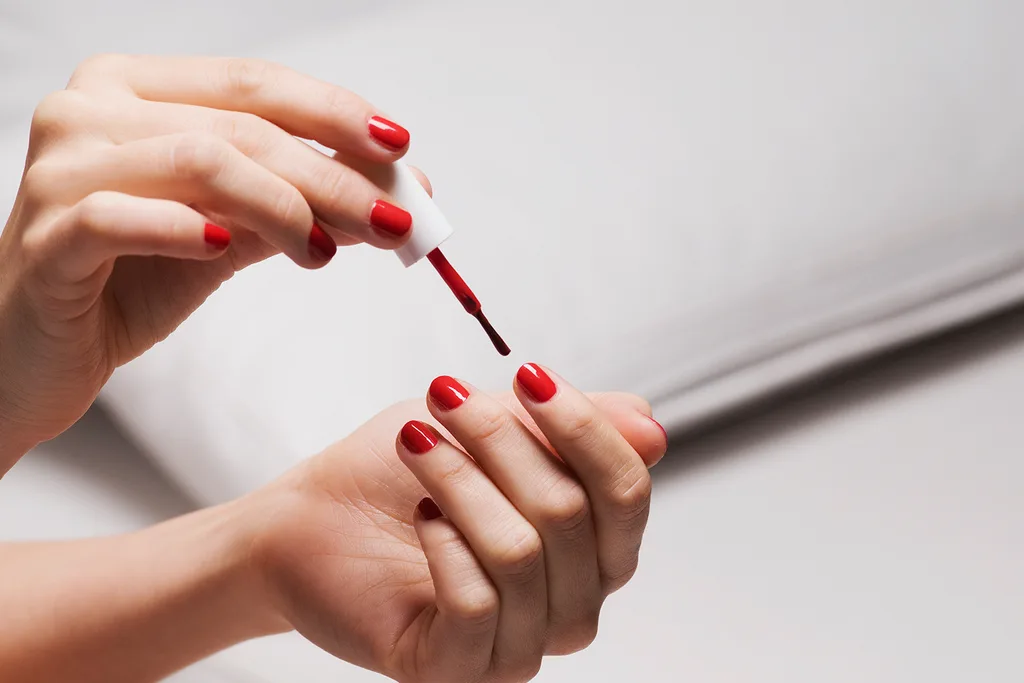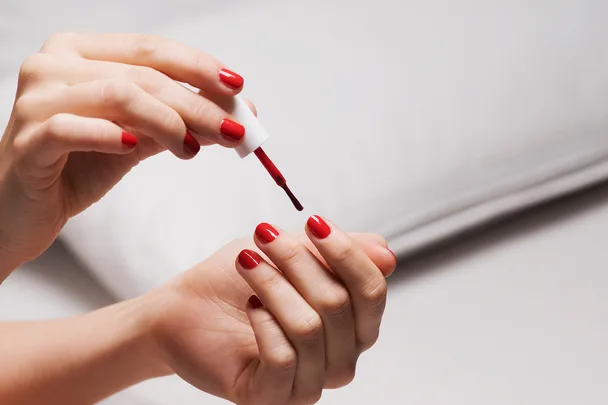There’s no denying that gel and acrylic nails make so much sense – they look great and they last way longer than your regular run-of-the-mill mani, but it turns out there is a chemical in them that can have some pretty scary side-effects if not applied properly.
While we’ve heard that the use of UV light can lead to cancer, now dermatologists in the UK and Ireland have issued a warning over Methacrylate chemicals, an ingredient used in gel and acrylic nails, which they say can cause an “allergy epidemic” which is “overwhelmingly affecting women”.
According to a 2017 study conducted by the British Association of Dermatologists, allergic reactions are most likely when the substance touches the skin and can result in loosening nails or a severe red and itchy rash which can occur anywhere on the body including eyelids, face neck and genitals. In severe cases, the allergy can even result in breathing difficulties.
RELATED: What Exactly Are SNS Nails? We Investigate

According to the BBC, the problem most often occurs when people are doing DIY manicures at home, and not under the supervision of trained professionals.
Dermatologists are urging people to be wary of at-home kits and instead stick with professional application.
“It is really important that people know they can develop allergies from artificial nails,” Dr David Orton, of the British Association of Dermatologists told the BBC.
“The truth is that there will be many women out there with these allergies who remain undiagnosed, because they may not link their symptoms to their nails, especially if the symptoms occur elsewhere on the body.
“It is important that they get a diagnosis so that they can avoid the allergen but also because developing an allergy to these chemicals can have lifelong consequences for dental treatments and surgeries where devices containing these allergens are in common use.”
Dr Orton also says beauticians are particularly at risk and should ensure they are properly trained and wearing proper protection when applying the products to clients.










